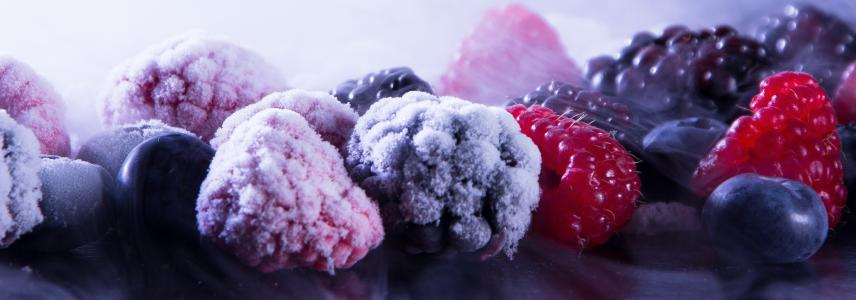Health during the COVID-19 crisis: Is washing your fruit and veggies with water harmful?

The COVID-19 crisis has had a huge impact on importers, especially in the processed fruit and vegetables and edible nuts sector. Below we share our latest market research with you.
The fruit and vegetable processing industry uses a lot of water. Most of that water is used to wash the products before drying or freezing them. Processing companies reduce the amount of water they use by reusing it. The water needs to be treated before it can be reused. The most common treatment method for recycling used water is chemical disinfection. But the chemicals, which are mostly chlorates and trihalomethanes, can stick to or be absorbed by the fruit and vegetables. This could mean that there are health risks for consumers.
In many countries, drinking water is disinfected using chlorine or chlorine oxide. Some countries use ozone or chloramines. These chemicals are widely used for disinfecting drinking water. But, they can cause chemical reactions when they come into contact with water or fruit and vegetables. They then form so-called disinfection by-products (DBP). An intense debate is going on at the European Safety Authority (EFSA) about the DBPs chlorates and trihalomethanes.
Use of chlorates
The use of chlorates as pesticides has been banned in the European Union since 2008. However, chlorates can form in chlorinated water as a result of chlorine degradation. The maximum allowable level of chlorates in drinking water and food is currently the subject of much debate at the EFSA. At present, a level of 0.01 mg/kg applies. However, the levels found in foods are often higher than this limit. A new regulation for chlorates is currently being discussed. With a new regulation, higher levels of chlorates may be allowed in certain foods. However, it has been recommended not to change the level of 0.01 mg/kg for baby and children’s food products.
There are two main ways chlorate can end up in processed fruit and vegetables. These are through the use of disinfected water and the use of chlorinated detergents. Chlorinated detergents are used for cleaning processing equipment on farms and in food processing facilities. Studies have evaluated the potential cancer-causing and DNA-damaging effects of these compounds in rodents. These studies suggest that chlorates might be harmful to humans. Still, there is not much information available on the health risks of chlorates in fruits and vegetables.
European Union and World Health Organisation negotiating
The European Union (EU) is negotiating with the World Health Organisation (WHO) about the maximum level of chlorates in drinking water. The EU recently proposed setting this level at 0.25 mg/L, even though the WHO suggested a much higher maximum level of 0.7 mg/L. In 2019, the German Federal Association of Wholesale, Foreign Trade and Services recommended against setting a maximum residue level that is lower for foodstuffs than for drinking water.
Disinfected water
Trihalomethanes (THMs) can also form through the use of chemically disinfected water. They are defined as potential cancer-causing compounds and are a real threat to public health. In the EU, the maximum contaminant level (MCL) of total THMs, the sum of chloroform, bromodichloromethane, dibromochloromethane and bromoform, is set at 100 μg/L.
What can you do?
The EFSA still needs to decide on the level of chlorates allowed in food. Until then, suppliers of fresh and processed fruit and vegetables should monitor chlorate levels in the water they use for washing their products and avoid chlorinated detergents. Also, if water is added to the final product, chlorinated water should be avoided. Examples include pickled or canned fruit and vegetables and rehydrated soft dried fruit.
It is also a good idea to stay informed on the newest laws and developments in this sector. CBI will update developing country exporters on European regulation developments for chlorates. This year, CBI Market Information is focussing on exploring opportunities for several products, including dried tropical fruit, frozen berries and frozen vegetables. For these products, chlorates might be a concern.
This news article was written for CBI by Autentika Global.
Stay informed
To stay informed on the latest developments in the processed fruit and vegetables sector, make sure you subscribe to our newsletter.